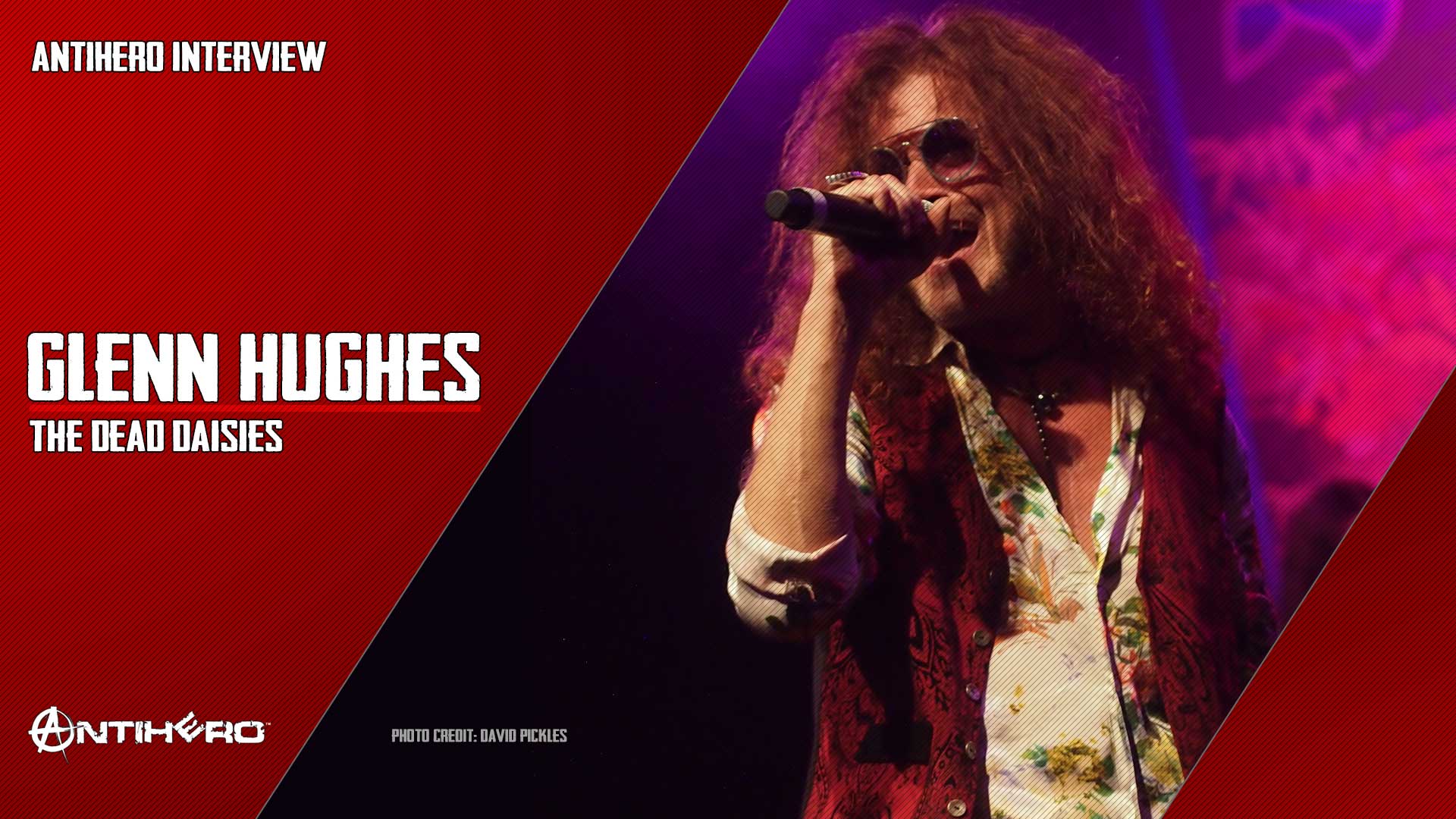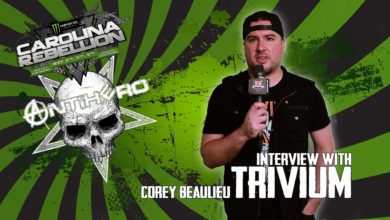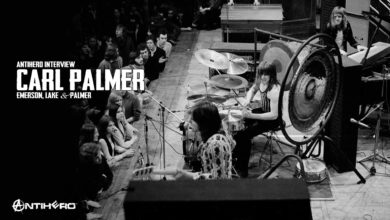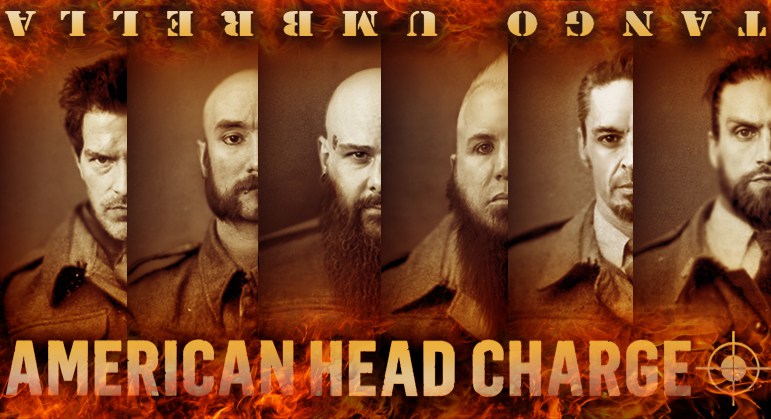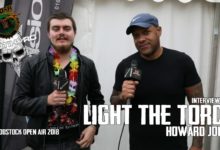Following the recent announcement that the ‘Voice of Rock’ Glenn Hughes had been brought into The Dead Daisies fold to replace vocalist John Corabi and bassist Marco Mendoza, we have an in-depth conversation with the Deep Purple legend about his extraordinary career and the fateful day he became a ‘real’ man…
ANTIHERO: Firstly, congratulations on joining The Dead Daisies, that’s fantastic news! The announcement came just a few days after you headlined at Stonedead Festival in the UK – how was it?
Glenn Hughes: It was an incredible event! I flew over on a Friday night and got there on Saturday, played on Saturday night and went home on Sunday. We went on late due to a few technical problems, but I didn’t let it bother me at all and I really enjoyed the show. Maybe ten years ago it wouldn’t have been so easy for me to do that, I just think I’m in a different headspace now. When the power goes off at one of my shows, which is not very often, you have to breathe and go, “well, I could either walk off the stage or throw a tantrum, or I could just carry on”, and I chose the latter. I didn’t know it was going to go off four or five times, but I didn’t let it interfere with my show and I didn’t blame anybody. In general, I thought we did a great show there and brought all the people together.
ANTIHERO: Deep Purple were listed in the 1975 Guinness Book of World Records as “The globe’s loudest band” for a 1972 concert at London’s Rainbow Theatre. Who would you say is the world’s loudest band currently?
Glenn Hughes: I don’t really know too much about the Metal artists of today – I’m sure there’s a Metal artist out there who goes out of his way to be extremely loud, but I can tell you from working with Tony Iommi that he is really loud – he somehow has the right to be, haha. But regarding who’s the loudest, I’m sure there is a band I don’t even know that are. I don’t go to concerts, so without being disrespectful, I don’t really know too much about who’s loud or soft.
ANTIHERO: What have been the biggest changes that you’ve witnessed in the music industry over the years?
Glenn Hughes: The music industry no longer exists. It’s basically run by the Internet and streaming and there are only a couple of record labels now, the big ones, and they have scaled down quite a lot.
Unless you are a Pop artist, like Bieber, who streams over 900 million or something – unless you’re in that category, where it’s all about young cute kids listening to Pop music, then the industry doesn’t exist. For Rock musicians that are starting out now it’s a difficult acquisition because there’s no money for the labels to give to them to make records. There’s no grooming and there’s no development or work process where people will help someone to get a leg up.
ANTIHERO: So, what advice would you give to Rock bands and musicians just starting out?
Glenn Hughes: You’ve got to live it, breathe it, feel it, smell it, eat it! I got my first guitar when I was twelve and I slept with it for about a year. Even to this day, I’ll sometimes put a guitar on the bed with me so I can feel it when I wake up. I think I’ve always had the capability to know where I came from musically. I was given this gift. I just thought I was going to be a soccer player when I was very young but I wasn’t good enough and then I found myself singing and playing bass and guitar and the rest is history, but I’ve given myself to music and music has found me. I walk on the stage some nights and you can see it sometimes – it bothers some people because I am very spiritual and I do get into that mode of giving thanks. I am a singer that sings live – there’s no Wizard of Oz behind the curtain for me. I am in my late 60s and people go, “How do you do it?” and I go “Well, I just breathe!” I simply adore the fact that God has given me this gift. I’ve said it before and I’ll say it again – it really isn’t me that’s singing, it’s coming from a higher place and that’s just the way I feel about what I do. I never ever think about the next note I’m going to sing, because if I think about it, I’ll miss it!
ANTIHERO: Who are your favourite up and coming British bands right now? Who can you see going on to great success?
Glenn Hughes: I don’t really know too much about British music… I live in Los Angeles so I only get to hear about it second hand. I don’t know what’s going on musically in the Rock scene in the UK but I’m saying that with respect – I would love to know, but as you know, the music business has changed, so maybe someone can tell me who to listen to! I had that feeling about a band when I heard Rival Sons, about eight years ago. I had my own radio show on Planet Rock and I was hosting a party in Beverly Hills and Jay was there and he came up to me and gave me his Pressure & Time CD. I hadn’t heard it before but I put it on my shelf, knowing it was going to be cool because I loved the way he looked and the way he spoke to me. I know it’s old news now, but they’ve been in my opinion in the last ten years a breath of fresh air for Rock and Blues music.
ANTIHERO: What was your best and worst experience from the Deep Purple era?
Glenn Hughes: There were so many beautiful insights into that band. We were a band that extended songs – Jon and Ritchie were such outstanding players – and I fell in love with that aspect of it. There were a lot of shows I can remember that were off the charts and just incredible! Things like Madison Square Garden, or the Chicago Amphitheatre, the Long Beach Arena in LA and of course Wembley Arena with Tommy Bolin. There’s been a lot of great stuff, but I don’t debate after a show whether it was good or bad, I’m always onto the next show, so I never really think too much about what I’ve done and I don’t analyse things too much.
ANTIHERO: What do you say to those who think that Rock stars should call it a day once they’ve reached their peak?
Glenn Hughes: Ooh, that’s a good one for me! I’m friends with Ringo and I was with him one night and somebody said to him very nicely, “When are you going to retire?” and he bolted straight up and went, “Retire? Why would I retire?!” And of course he could retire, but I think that a lot of musicians who really love playing music really do enjoy giving back and honouring the music. And I’m one of those dudes who could literally finish now if I wanted to, but I don’t want to. I’m going through a period of my life where things are going damn well for me – I’ve had some health issues that are now fine, I’m singing better than I think I’ve ever done and I give a lot of acknowledgment to the people who follow me on the Internet and the fans who show up to my shows. I’m very social with them – I do like to say hi and meet them and I’m not one to run away from an autograph. I’ve given my life to music. God and music in that order, but music is the centre of my universe. I’ve been singing some of those songs from the Deep Purple legacy for 40-something years and I’ve never ever gone “Oh, do I have to do this again?!” No, that’s not me.
ANTIHERO: Your rescheduled ‘Glenn Hughes Performs Classic Deep Purple Live’ UK tour will be going ahead in November – do you envisage doing a tour of Trapeze songs too one day?
Glenn Hughes: I’d love to! I’m getting communications from promoters about that. I would love to do that – it would be bigger in America and I could find people who adore Trapeze, like Billy Gibbons who’s a huge Trapeze fan, so I don’t think I’d have a problem finding someone to play it with, but I’m glad you mentioned that band because that’s where it started for me and that’s where I found my legs. I’ve been doing this for fifty years now and it’s never going to really stop for me because I really love what I do and I love giving back to the people that follow my music.
ANTIHERO: You once said, “I do believe that a man doesn’t become a man until he loses his Mum” – can you elaborate on the impact that your late mother’s passing in 2017 had on you?
Glenn Hughes: Well, I’m an only child and my father had passed a year before my Mum. My father passed as I was getting the award at the Hall of Fame in New York. I’d spoken to mother the day before and she called me the day of the show. My Dad was in the hospital with dementia and they didn’t know when he was going to pass, but he passed when I was on stage with Deep Purple getting the award, so that was really difficult for me to deal with. When Mum was passing I flew to England in early January and made a visit to see her. She hung in there and we started our tour of the UK in mid-January. I’d come back to see Mum a few times – we were in Cambridge and she was in hospital in Wolverhampton, and then I got a call from the Head Nurse who said, “Can you come to see your Mum?” She didn’t say, “This is the end, she’s going to die”, they don’t do that, but you just know. So I got my bus driver to drive me up there and I got to the hospital at around 3 or 4 o’clock in the morning – my cousins were in there and my assistant was with me. I was kissing my mother and physically she wasn’t aware that I was there, but consciously, I knew that she knew I was there and that she was holding me. I’ve never told anyone this story before but the Head Nurse that night told me that after twelve hours of being on a morphine drip, they’d noticed my Mum’s legs were turning a dark shade of blue and she said, “Can you talk to her in your local accent rather than your California accent?” and I said, “Why?” and she said, “because your Mum is going through a phase where she needs to feel the comfort of the younger voice of Glenn, or the voice that you had years ago”, and I took direction from this lady and I saw some wonderful things happen to my mother’s soul when she was about to pass. That for me, being a clean and sober man for over 25 years, was a difficult day.
I was playing in Leeds that night at a venue called The Church – it’s a real church turned into a venue – and about half an hour before I’m due to go on stage I get a call from a friend of mine who was taking care of me back then, telling me that my mother had passed. The news about my Mum’s passing spread really quickly – the audience were all waiting for me and I was dressed in black. When I arrived from LA in January my Mum had said to me, “Glenn, you must promise me not to cancel a show.” I said, “I won’t, Mum”. So, I had the option that night to cancel the show, or be brave enough to walk out onto that stage and give it my all, and I did give it my all. I’ve seen footage of the show – I felt very close to my mother on stage – I welcome her spirit and my father’s spirit, along with other people I know. It takes a lot of courage to sit in a room knowing your parents are going to die and you’ll never physically see them again. I couldn’t have done that a long time ago when I was drinking, that’s for sure. Her funeral was a month after she passed and I was now at the end of my European tour and I’d promised her I wouldn’t cancel a show, so the day of her funeral, I cried my heart out before the show in Germany and I had my own little ceremony in my dressing room and I had a healer with me. Five days later I went back to London and drove to Cannock and had my own ceremony for my mother with my family and close friends, and my wife flew over of course. So to say that “A man doesn’t become a man until he loses his Mum” is a very bold statement, but people reading this will probably know what I’m talking about because I was very, very close to my mother.
ANTIHERO: Thank you for sharing such a deeply personal account with us, Glenn.
Glenn Hughes: You’re welcome.
ANTIHERO: Lastly, if you could only one play one song for the rest of your life, what would it be and why?
Glenn Hughes: It’s a tough one, isn’t it?! I’ve written so many songs, beautiful and rocky and soulful… You know, when I listen to my work, and by the way, you need to know this, I don’t listen to my work once I’ve recorded it – I don’t go back and listen to it over and over again, but I do like to go back sometimes and listen to vintage stuff. The first big song I wrote for Trapeze back in 1972 was ‘Coast to Coast’, and that’s a very simple song, written with an acoustic guitar in my mother’s kitchen. It’s a very, very simple piece of music and it was a big hit with my followers, so that’s the song I think that catapulted me from clubs into the Deep Purple world, to where I am today. I think it takes just one song for someone to realise, “You know something? I’m gonna be okay here”. I’d just written a song called ‘Coast to Coast’, with these wonderful chords, thinking, “I’m 19 years old – I think I’m gonna be okay if I stay the course and if I stay on this path”. And I’ve done that.
Listen to ‘Righteous Days’, the first single released by The Dead Daisies featuring Glenn Hughes:
https://thedeaddaisies.com/rocktheplanet/
For tickets to see the ‘Glenn Hughes Performs Classic Deep Purple Live’ UK tour this November, visit: www.thegigcartel.com

